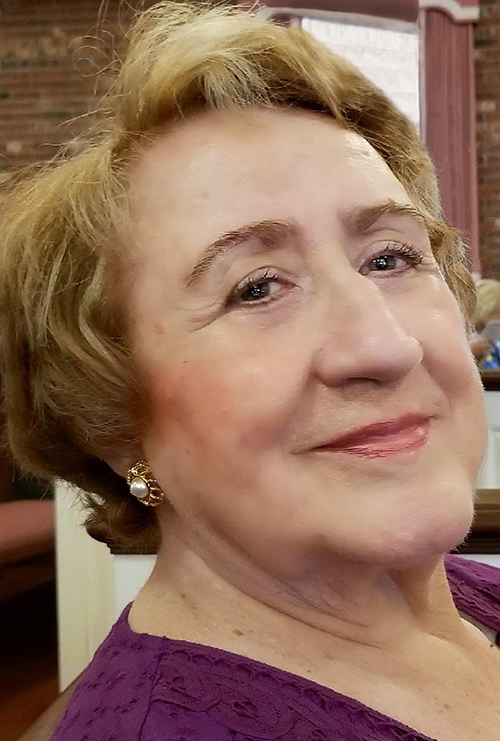by Cicilia Yudha
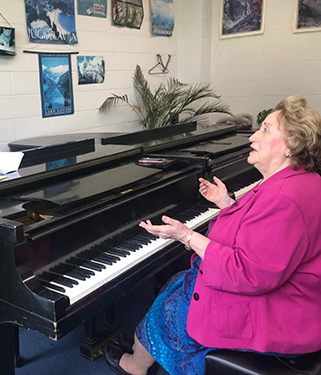
After the first movement was splendidly done, Ms. Olga stood up. There was an audible gasp from the audience. She stood up, hunched down at the piano looking as if she had lost an earring. Maestro Davidson spoke to her and after a few minutes, she sat down at the keyboard again. The orchestra began the heart-wrenching introduction of the slow movement in c minor. Ms. Olga joined in with the piano’s melody. However, after a few bars, she stopped. Something was clearly wrong. Was she having a memory slip?
Here was a musician who trained her students to always “count on eventualities,” and that “the show must go on.” As she, aided by the maestro, limped offstage, I rushed to the backstage where I found her standing with her hands against the wall saying frantically, “I can’t breathe. I can’t breathe.”
Thank goodness for our proximity to the Duke Medical Center. The EMT came instantly and moments later, her husband and I found ourselves at the ER waiting anxiously for news. After she was stabilized, they informed us that she experienced congestive heart failure. (In hindsight, no wonder she remarked how “humid” the air felt that evening. She had fluid in her lungs!)
When I was allowed to see her, she immediately “ordered” me to look for the planner in her purse and call all the students she was scheduled to teach in Cleveland later that week. Aside from the traumatizing memory of seeing my teacher collapse on stage, I will always remember her devotion and sense of responsibility to her students. Her dedication — even when she was at death’s doorstep — was inspiring.
Ms. Olga passed away on Tuesday, August 30, 2022, at the age of 84. Two days prior to her demise, she told a close friend that she was having difficulty breathing.
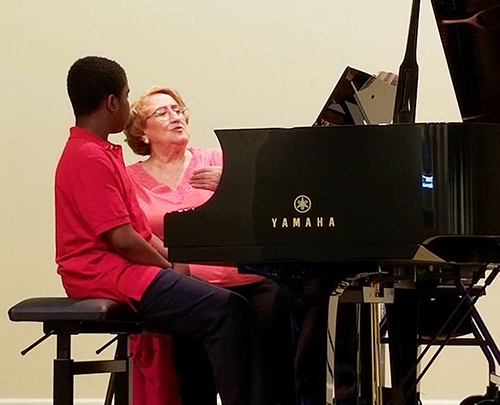
Ms. Olga was a “disciple” of Carl Czerny, Ludwig van Beethoven’s student and Franz Liszt’s teacher, who was dubbed the father of modern piano technique. Studying his etudes was a rite of passage for all her students, so much that someone made her a button that said, “Life is like a bowl of Czerny.” While many students play these etudes as mere finger exercises, Ms. Olga turned them into beautiful pieces. She performed the entire volume of Op. 740, The Art of Finger Dexterity for the Piano (fifty studies), in one of her Artist Diploma recitals. When I programmed a few of these studies in my recitals, audience members were always delightfully surprised by these works.
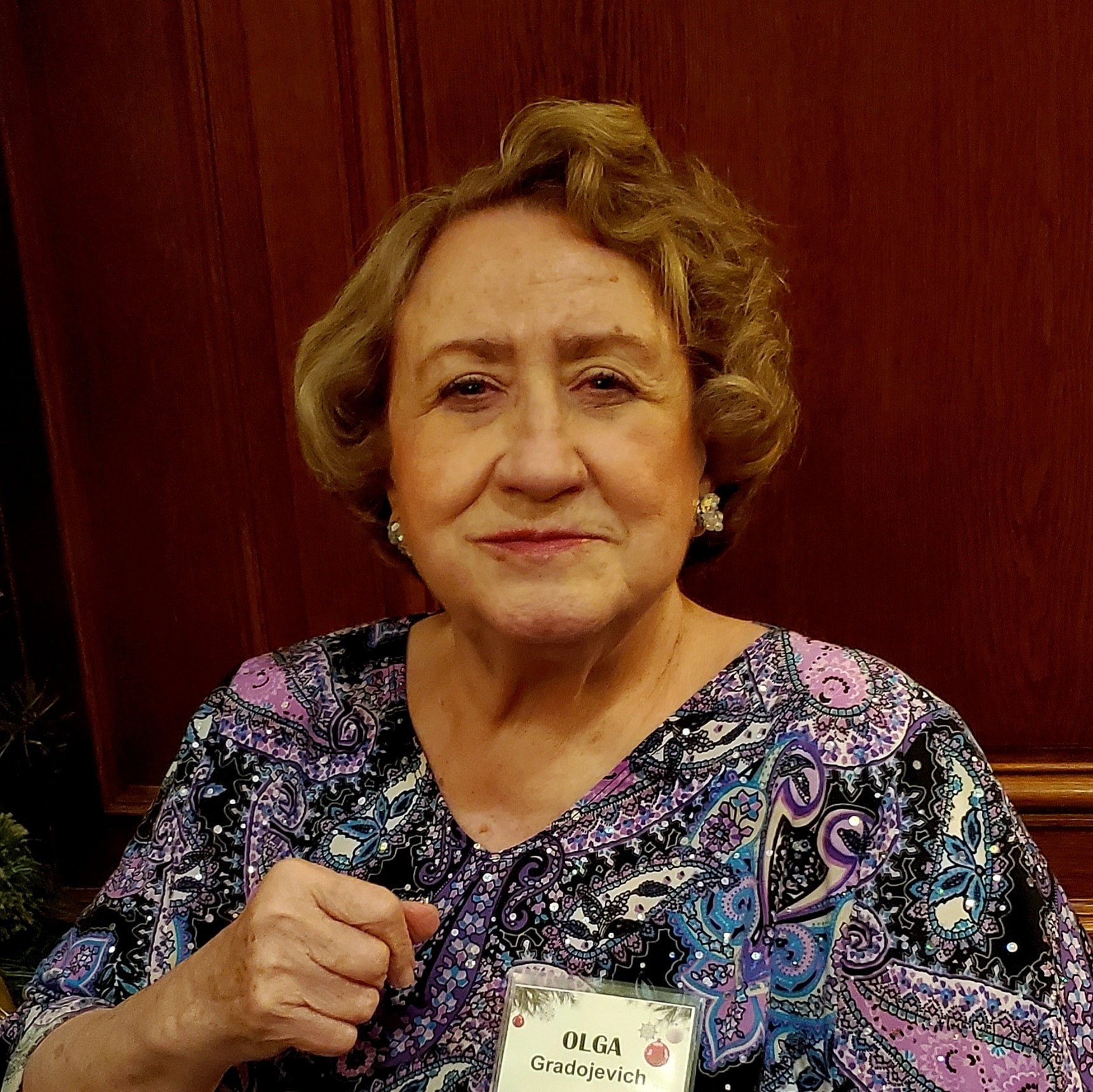
In addition to being a formidable pedagogue, Ms. Olga was also extremely organized. She worked as executive assistant at ENCORE School for Strings from 1985-1988, and then served as the head of CIM Preparatory piano division from 1985-2004. She always had her planner and a to-do list. She taught her students how to be disciplined and how to organize their time. She was a teacher who would call you at 6:30 am so that you could begin practicing when CIM opened its doors at 7.
Having been a young immigrant who had to assimilate to a new culture in this country, Ms. Olga was particularly welcoming to international students. (In the 1980s, she was instrumental in founding CIM’s “Young Artist Program,” an intensive conservatory training for musicians aged 10-18, that attracted students nationally and internationally). Ms. Olga opened her home generously to her students. They became her extended family and as a result, there was a familial feeling in her studio. A myriad of pictures of current and former students decorated her studio (room 223) at CIM. There would be a certain familiarity when a former student might visit her during your lesson because you would have seen their pictures weekly on her wall.
She introduced preparatory students’ families to international students to help them feel at home in Cleveland. She made sure that they would have food and places to practice when CIM and Case Western were closed on holidays or breaks. She also made sure these students had appropriate clothes and shoes for performances, and for weathering Northeast Ohio winters.
Many of her former students can recall dinners at her house, trips to competitions, and trips to hear performances by students, professional musicians, orchestras, and international folk-dance troupes. She encouraged curiosity and critical listening by asking us questions about what we saw and heard. She also loved taking students on excursions, from Cleveland’s West Side Market to Blossom to Niagara Falls. She was always interested in the well-being of her students, beyond their ability to play a Chopin Scherzo or a Beethoven Sonata. She would listen and impart wisdom when needed. It is no wonder that many of her former students regard her as their “second mother.”
While perhaps at times the line between student-teacher and quasi-parent-child relationships got blurry, Ms. Olga’s vision for each student’s success was genuine. By being “tough” on her students, she nurtured grit, resilience, and perseverance in them. She always looked for honesty and sincerity in musical expression. She listened for the essence of music, substance in the singing tone, and colors from the instrument in each performance.
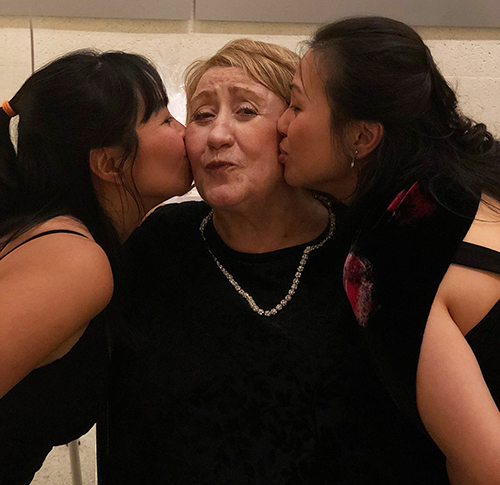
As for me, while I mourn her loss, I am grateful that Ms. Olga had 21 more years after that night at Duke. She had more time with her family and saw her grandchildren grow up to be wonderful young adults. She enjoyed more music and enriched more lives with her teaching and performances. She saw her students’ careers and lives flourish. More recently, as many of her students gathered to celebrate her 80th birthday in 2017 at her beloved CIM, she was able to enjoy relationships built over a lifetime and to see that she had created a web of dedicated musicians — her extended family — who are keeping her extraordinary legacy alive across the world.
Rest in Peace, Ms. Olga. Хвала на свему!
—Cicilia Yudha
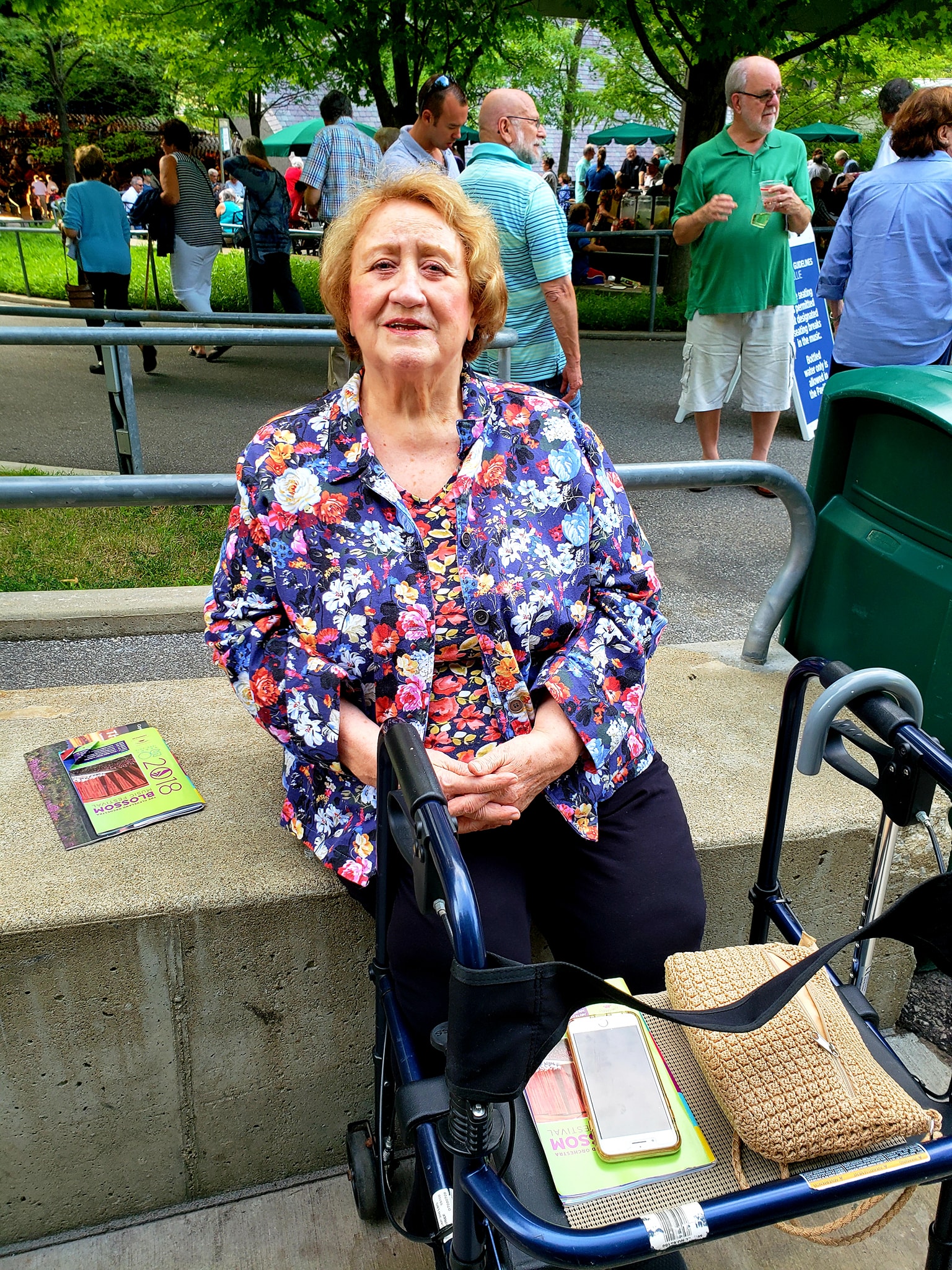
“I’ve devoted my life to making it possible for many individuals to pursue a life that would always include music as a means of expressing themselves. This wonderful gift to life, which I call music, has given me strength to continue my devotion and my work because I am myself a victim of an immense love for it.”
Published on ClevelandClassical.com September 8, 2022.
Click here for a printable copy of this article



